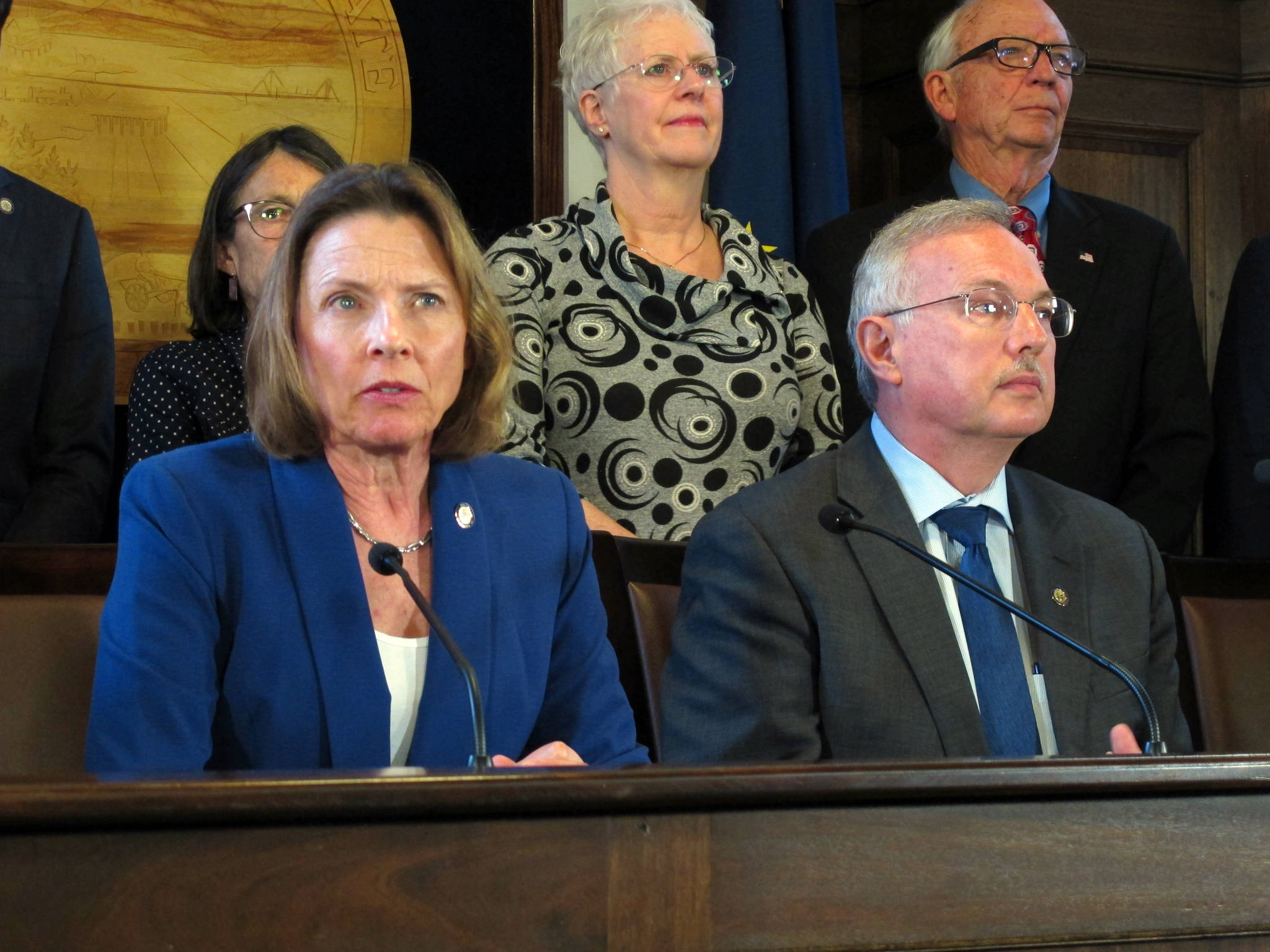JUNEAU — The Alaska Legislature, locked in a fight with Gov. Mike Dunleavy over education funding, moved one step closer Tuesday to a lawsuit over the issue.
The House and Senate voted to give the committee that handles legislative business, the Legislative Council, authority to sue.
Sen. Gary Stevens, the Legislative Council chair, told reporters a lawsuit could be filed if the money for K-12 schools is not released. Stevens, a Kodiak Republican, said the council composed of House and Senate members would have to vote to move forward.
Lawmakers supporting the authorization cast the dispute as a separation of powers issue and an effort to get clarity on a practice known as forward funding.
“There’s no reason we shouldn’t want this question asked and answered by the courts,” said Republican Rep. Chuck Kopp of Anchorage, a member of the bipartisan House majority coalition’s leadership. He said this is a legal issue, not a political one.
Rep. Tammie Wilson, a North Pole Republican and another coalition leader, said lawmakers did not start this fight.
But legislators who voted against the authorization said the issue could be resolved without litigation by putting the money in the budget now.
Rep. DeLena Johnson, a minority Republican from Palmer, urged her colleagues not to waste time and money with a lawsuit.
Lawmakers last year approved funding for public schools for the fiscal year starting July 1, 2019, plus an additional $30 million to be distributed among districts. That move was not vetoed by then-Gov. Bill Walker.
But Attorney General Kevin Clarkson has said the Legislature’s action last year has the effect of improperly binding a future legislature and governor and violates a constitutional prohibition against dedicating state revenues.
“This is a battle over whether the annual budgeting process envisioned by our founders and set forth in the Alaska Constitution requires the Legislature and the governor every year to consider how to spend the revenues available to them and prohibits setting aside future revenues in a future fiscal year,” Clarkson said in a recent opinion piece.
The administration has argued the appropriation approved last year is not valid and said it needs a valid appropriation to legally distribute the money.
The Legislature during the recently ended regular session and the current special session has stood behind its actions last year and refused to budge, leaning on the opinion of its own legal counsel.
Dunleavy said getting the issue worked out is important “so that we know what we can do moving forward.”
One idea floated by the administration is the inclusion of about $1.2 billion for school and student transportation funds in the budget and withholding the additional $30 million to trigger a potential lawsuit.
Dunleavy told reporters that holding such a “small portion” of the funding could be an easier way to bring about a clarifying lawsuit. But he said the administration would prefer to see education funded “in a manner we believe it should be funded.”
• By BECKY BOHRER, Associated Press

